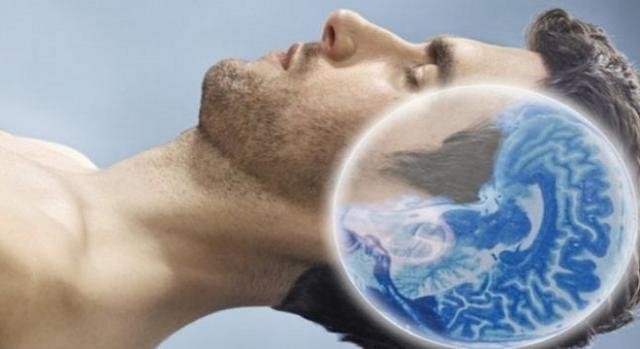During sleep, the brain does not rest and interrupted sleep affects memory!
A new study suggests that the main purpose of sleep may be forgetting memories for new ones to be stored for future use. Over the years, researchers have tried to find out why people must sleep at least a third of each day. New research provides evidence on the idea that during sleep the brain stores information.
One researcher suggests that sleeping pills, although induce state could interfere with this process. In one study, mice were placed in a new room and it was administered a poorly electric shock. To a part of those mice were administered pills to prevent reorganization of memories in the brain, while the other group had a normal night's rest.
When mice were restored in the new area, they remember the electric shock and have spent more time still. Rest mice were placed in a new environment, at first they hesitated, but began to explore space as a normal mouse after a few moments. But, in mice which have been taking the medicine, they tended to stand still for fear of another electric shock, even if they were in a new place.
The experts say that such behavior was caused by drugs intervention in a process called 'scaling reduced' which is considered by researchers the key to forget certain memories to allow the storage of new ones.
Dr. Graham Diering says:
I think the memory of the shock was much stronger in mice whom I administered drugs because their synapses could not perform the replacement of memory. The most important is that during sleep the brain does not rest.
In another study, experts from Wisconsin Centre for Sleep and Consciosness, have used electron microscopes to record images on the activity of synapses in the brain when the mice were awake or when sleeping. They found clear evidence of process 'scaling' during sleep.
Interrupted sleep affects memory
The latest study conducted by researchers from Stanford University has shown that interrupted sleep affects animals' ability to remember familiar images. The study was conducted on mice, and discoveries published in the journal Proceedings of the National Academy of Science may explain the memory problems of Alzheimer's and sleep apnea.
British experts in sleep problems says that the human brain uses deep sleep to evaluate the events of the day and decide what to keep and what not.
The study aimed fragmented sleep with the same duration as normal sleep and with the same intensity. The researchers used a technique called 'optogenetica' in which some cells are genetically modified to be sensitive to light. Researchers have proposed to study a specific cell type in the brain that plays an important role in the transition from the sleep state to the wake.
They sent light beams directly into the brains of sleeping mice, which allowed their sleep disruption without changing its overall length, quality or structure. Thereafter, rats were placed in a box with two objects. One of them was familiar, but the other was new to them.
Normally, mice would have spent more time studying the new object, which was also the case with mice whose sleep was not interrupted. The fragmented sleep were both equally interested in objects, which indicates that the memory has been affected.
The researchers said:
Sleep continuity is one of the most important factors that affected various pathological diseases affecting memory, including Alzheimer's disease. Unfortunately, we concluded that regardless of how short the sleep, even a small disruption of its, leads to worsening memory.
It has not shown that sleep disorders could cause these diseases instead.
Dr Neil Stanley, member of the Society of Sleep Research UK said:
During the day, we accumulate memories. At some point we have to sort them, and some of them have to save them in a permanent memory. This process occurs during deep sleep, so anything that affects sleep will have a direct effect on memory. We do not know if degeneration of the brain responsible for sleep is bad or vice versa.
Also he added that people who suffer from sleep apnea have problems with "saving" these memories and those with Alzheimer's disease often have trouble sleeping.
Dr. Miranda Watson, communications director of the British Foundation of Pneumology said:
For patients with severe sleep disorders and obstructive sleep apnea, the results of this study are not a surprise. These patients stopped breathing during the night when the airway is blocked, and thus are deprived of a peaceful sleep. Interrupted sleep leads to daytime fatigue and memory loss.
Sleep is the golden chain that binds health and our bodies together - Thomas Dekker - Source -
Sleep is like meditation, you should use it right so that you can fully enjoy the results it brings.




Great article
Thank you!
This post has been ranked within the top 80 most undervalued posts in the second half of Feb 07. We estimate that this post is undervalued by $5.56 as compared to a scenario in which every voter had an equal say.
See the full rankings and details in The Daily Tribune: Feb 07 - Part II. You can also read about some of our methodology, data analysis and technical details in our initial post.
If you are the author and would prefer not to receive these comments, simply reply "Stop" to this comment.
Ok, thanks!
Very interesting!
@ kus-knee (The Old Dog)
Thank you, man! It was interesting for me too. Glad you like it Old Dog!
@the-future hmmm.. even when am just nappin .. I don't think my brain is still active - mine seem to doze off too deep very very deep specially these days but interesting post man
:)) I believe that you are very tired, but this might be true! Thanks for your comment @englishtchrivy, I really appreciate it.